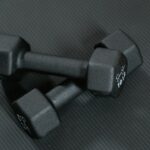When we hit the gym or push through a tough workout, we all want to see results faster and recover better. That’s where working out supplements come into play. With so many options lining the shelves, it’s easy to wonder which ones actually make a difference and which are just hype.
We’re all looking for that extra edge—something to help us power through a workout, build muscle, or bounce back quicker. The world of supplements can be confusing, but understanding what works and why can help us make smarter choices for our fitness goals. Let’s dive into the essentials and see how the right supplements can support our journey to better health and performance.
Overview Of Working Out Supplements
Working out supplements come in many forms and aim to help us reach our fitness goals faster and more effectively. These products generally target muscle growth, strength, endurance, or recovery. Common supplement formats include powders, pills, bars, and drinks, each offering a slightly different ingredient profile and absorption rate. When we browse supplement aisles or online listings, the choices might feel endless—protein powders, creatine, amino acids, pre-workout blends, fat burners, and more.
Key Types of Workout Supplements
Let’s break down the main categories of working out supplements so we can understand their roles:
- Protein Supplements: These help repair and build muscle tissues after intense activity. Popular sources are whey, casein, soy, and plant-based proteins. Many choose protein powder for convenience and fast absorption, especially after workouts.
- Creatine: This is one of the most researched and effective supplements for power and muscle gain. It helps our muscles produce more energy during short, intense bursts of activity like lifting or sprinting.
- Branched-Chain Amino Acids (BCAAs): These essential aminos (leucine, isoleucine, and valine) promote muscle recovery and reduce soreness. Some people take BCAAs during or right after workouts to aid faster recovery.
- Pre-Workout Blends: Designed to boost energy and focus, pre-workout products often contain caffeine, beta-alanine, and nitric oxide precursors. The effect is usually a noticeable kick that gets us ready for tough sessions.
- Fat Burners and Thermogenics: These supplement blends claim to speed up metabolism or enhance calorie burning. They commonly use ingredients like caffeine, green tea extract, or capsaicin. Although results vary, some people find these formulas helpful alongside a dedicated training and nutrition plan.
- Electrolytes and Hydration Support: We also find products designed for endurance athletes, with electrolytes (like sodium and potassium) to prevent dehydration and cramps during long workouts.
Common Ingredients Found in Workout Supplements
There are recurring components across many supplement types. Here’s a table summarizing some key ingredients and their primary benefits in working out supplements:
| Ingredient | Benefit | Typical Source |
|---|---|---|
| Whey Protein | Muscle growth and recovery | Milk |
| Creatine Monohydrate | Increased strength and power | Naturally in red meat |
| Beta-Alanine | Delays muscle fatigue | Synthesized in labs |
| Caffeine | Boosts energy and alertness | Coffee, Green tea |
| BCAAs | Faster muscle repair | Animal, plant proteins |
| L-Citrulline | Enhances blood flow | Watermelon, supplements |
How Supplementation Supports Training
Many gym-goers and athletes look to supplements for an extra push beyond what food alone can provide. For instance, post-workout protein shakes help us quickly hit our protein targets for recovery, while taking creatine before or after exercise can boost muscle gains over time. The right pre-workout blend may even help break through a training plateau by providing mental energy and stamina.
It’s important for us to remember that no supplement replaces a well-rounded diet. These products act as tools to fill in gaps or provide concentrated nutrients when whole foods aren’t practical—like right after the gym or during a competition. When used wisely, supplements can make a noticeable difference in how quickly we recover, how much energy we have, and even how consistently we progress toward our goals.
Trends and Considerations
The supplement industry keeps expanding, with increasingly specialized formulas for different sports, dietary restrictions, and wellness goals. Clean labeling, minimal ingredients, and plant-based alternatives are trends capturing our attention right now. But with so many products out there, it’s important to be critical about marketing claims and focus on ingredients backed by scientific evidence.
Before adding any supplement to our routine, checking for third-party testing, understanding the ingredient list, and considering our own health status make a big difference. Matching the product to our actual needs and goals ensures we get the most out of our supplement investment.
Types Of Working Out Supplements
Navigating the supplement aisle can feel like stepping into a new world. To help us find what really matters, we have broken down the most popular types of working out supplements below.
Protein Supplements
Protein supplements are everywhere for a reason. They are designed to help us repair muscles after workouts and support lean muscle growth. Most protein powders come from sources like whey, casein, soy, or plants like peas. When we hit the gym hard, our muscles need amino acids to recover, and these supplements deliver those building blocks in concentrated form.
Whey protein stands out because it digests quickly, making it a top pick right after exercise. Casein digests slower and works well as a nighttime choice for steady recovery. Plant-based options have improved over the years, matching dairy-based proteins for many users. We find protein supplements in ready-to-drink shakes, bars, and powders, so fitting them into a daily routine is easy.
For those tracking macros or trying to build muscle, protein supplements can fill nutrition gaps without extra carbs or fat. However, relying just on powders is not recommended—a mix of whole foods and supplements gets the best results. Some downsides include potential digestive issues and artificial flavors in some brands. Athletes with dairy sensitivities may want to check plant-based or isolate forms, which are gentler on the stomach.
| Protein Type | Typical Source | Digestive Speed | Protein Content (Per Scoop) | Best Use |
|---|---|---|---|---|
| Whey | Milk | Fast | 20-25g | Post-workout |
| Casein | Milk | Slow | 20-24g | Nighttime or between meals |
| Soy | Soybeans | Medium | 20-25g | Vegan/vegetarian diets |
| Plant Blend | Pea, Rice, etc. | Medium | 15-22g | Dairy-free option |
Pre-Workout Supplements
Pre-workout supplements promise a noticeable boost in energy, focus, and endurance right before we start our training. These blends usually mix caffeine, beta-alanine, citrulline, creatine, and sometimes B-vitamins or herbal extracts. Caffeine drives the energy spike by stimulating the nervous system, while beta-alanine helps buffer muscle fatigue so we can push harder.
For those early morning sessions or intense training blocks, pre-workouts can help us break plateaus. The tingling feeling some products cause comes from beta-alanine—it is harmless but surprising the first time. L-citrulline may help improve blood flow, contributing to a great pump.
It is important to watch the dosages to avoid jitters or crashes, as many products pack in high caffeine amounts. For those sensitive to stimulants, stimulant-free options provide focus and endurance boosts without the buzz. Pre-workouts can help us stay consistent by making hard workouts feel just a bit easier. Still, tolerance can build up, and skipping them from time to time may keep the effects strong.
We like that some new blends focus on transparent ingredient lists and natural flavors, but always check for banned substances if competing in sports.
| Common Ingredients | Main Benefit | Typical Dosage |
|---|---|---|
| Caffeine | Energy, mental alertness | 100-300mg |
| Beta-alanine | Delay muscle fatigue (tingling skin) | 1.6-3.2g |
| Creatine | Power and muscular endurance | 2-5g |
| L-Citrulline | Improved blood flow (“pump”) | 3-6g |
| B-vitamins | Energy metabolism | Per recommended DV |
Creatine
Creatine has earned its reputation as one of the most studied and effective workout supplements, especially for those focused on strength and muscle gain. Our bodies produce creatine naturally, but supplementing boosts muscle stores, helping us regenerate energy (ATP) faster during high-intensity actions like weightlifting and sprinting.
The most popular form is creatine monohydrate due to its purity, price, and proven results. Most studies agree a daily dose between 3-5 grams supports muscle power, better recovery, and increased muscle volume thanks to water retention in muscle cells.
We like that creatine is flavorless and easy to add to shakes, water, or pre-workout blends. Loading phases (taking higher amounts for the first week) are optional, but many people see steady results without it. While some users notice minor bloating, side effects are rare and mild for most athletes.
Creatine’s main downside is it does not work overnight—it may take a couple of weeks to feel its full benefit. Unlike some fat burners or pre-workouts, creatine is not about sensation but results we see on the barbell or in muscle size. It is safe for long-term use by both men and women, making it a staple in many workout routines.
| Creatine Type | Price Range | Absorption | Notable Feature |
|---|---|---|---|
| Creatine Monohydrate | $ | High | Most researched |
| Creatine HCl | $$ | Very High | Smaller dose needed |
| Buffered Creatine | $$$ | Medium | May reduce bloating |
BCAAs and Amino Acids
BCAAs (branched-chain amino acids) are a subset of essential amino acids: leucine, isoleucine, and valine. These are crucial for muscle protein synthesis and can help reduce muscle soreness and speed up recovery. While many protein powders already contain BCAAs naturally, dedicated BCAA supplements are popular for intra-workout sipping or fasted training sessions.
BCAAs are usually available in flavored drink mixes, making hydration easier during long workouts. We find them especially helpful during calorie cutting phases because they preserve lean muscle while dieting. However, complete essential amino acid (EAA) blends or full protein supplements may deliver better overall muscle-building benefits.
There is some debate around how much BCAAs support muscle growth if our regular protein intake is already high. Still, for endurance athletes or those training multiple times a day, the convenience and hydration factor are big wins. Vegan and vegetarian users can find BCAA supplements derived from plant sources.
| Amino Acid Supplement | Main Components | Best For | Average Cost |
|---|---|---|---|
| BCAA Blend | Leucine, Isoleucine, Valine | Muscle recovery, energy | $-$$ |
| EAA Blend | All essential amino acids | Full spectrum recovery | $$ |
| Glutamine | L-glutamine | Immune support, recovery | $ |
Fat Burners
Fat burners combine caffeine, green tea extract, L-carnitine, and other metabolism-supporting compounds to help us burn more calories and potentially speed up fat loss. These supplements promise increased energy, appetite suppression, and thermogenesis (higher calorie burn based on body heat), making them popular with those in cutting phases.
Some advanced fat burners include ingredients like cayenne pepper for thermogenic effects, while others rely more on stimulants for energy. They are available in pill or powder forms and often double as stand-alone pre-workouts for those training on a calorie deficit.
However, fat burners are not magic pills. Without the right diet and exercise, results are limited. Side effects can include jitters, trouble sleeping, or increased heart rate—so it is best to start with a small dose. We recommend checking labels for transparency and avoiding proprietary blends that hide ingredient amounts.
Modern formulas may focus on “natural” stimulants and clean energy profiles, but the results still depend on consistent healthy habits. For anyone with underlying health conditions, consulting a healthcare professional before use is crucial.
| Key Ingredient | Purpose | Notes/Warnings |
|---|---|---|
| Caffeine | Energy, thermogenesis | May cause jitters |
| Green Tea Extract | Metabolism support | Some evidence for fat loss |
| L-Carnitine | Fat metabolism | More effective in deficient populations |
| Cayenne Pepper | Increases calorie burn | Can cause digestive upset |
| Yohimbine | Fat release from cells | Not recommended for some heart conditions |
Key Features To Consider
Choosing the right workout supplement can make a noticeable difference in our performance and recovery. Several key features stand out when we compare products, helping us find options that match our goals and preferences.
Ingredients and Formulations
The main draw of any workout supplement is its ingredient list. We need to look for products that use high-quality, clinically studied ingredients and avoid unnecessary fillers. For example, a good whey protein will list whey concentrate or isolate as the first ingredient, without a long list of artificial additives. Creatine monohydrate is another gold standard ingredient, well-researched for its effectiveness.
Formulations matter because some products combine several compounds into “proprietary blends.” This can be a red flag if the label doesn’t specify exact amounts for each ingredient. We recommend prioritizing transparency—products that disclose the dosage for every component. This helps us verify that we are getting enough of each ingredient to see benefits. Clean-label trends are growing, with many brands now offering vegan or plant-based protein powders for those avoiding dairy or animal products. Non-GMO, soy-free, and gluten-free markings also help us identify options that fit our dietary needs.
Another consideration is ingredient synergy. Some blends are designed with ingredients working together to enhance absorption or effectiveness. For instance, adding black pepper extract (BioPerine) to a pre-workout can improve the absorption of certain nutrients.
Dosage and Serving Size
The effectiveness of a supplement often depends on taking the right dose. It’s important that we check if the serving size matches the amounts found effective in research. For protein, most serving sizes offer about 20 to 30 grams per scoop, which fits the recommended intake for muscle recovery after training sessions. Creatine is typically dosed at 3 to 5 grams daily for optimal results.
Some pre-workout and BCAA powders offer smaller doses than recommended, which could make them less effective. Conversely, excessive dosages—especially of stimulants like caffeine—can cause side effects or make us feel jittery, so we watch for products that give clear dosing instructions.
Single-serve packaging can help with portion control, but bulk powders may offer more flexibility if we want to adjust our dose based on training volume or goals. Always check label recommendations and be careful with multi-scoop suggestions, which can increase cost and the risk of side effects.
Flavor and Mixability
Enjoying the flavor and how well a supplement mixes might sound secondary, but it plays a huge role in how consistently we use the product. Many options come in classic flavors like chocolate, vanilla, or berry, while others experiment with unique offerings like salted caramel or watermelon. Some products taste overly sweet or artificial, which can be off-putting if we’re drinking them daily.
Mixability refers to how easily the powder dissolves in water or milk. Good supplements should mix quickly without leaving clumps or gritty residue. Protein powders often get compared for this feature, as poor mixability can ruin shakes and post-workout drinks. We find that whey isolate varieties generally dissolve better than casein or some plant-based proteins. If mixability is a frequent problem, opting for brands that use lecithin (a natural emulsifier) can improve results.
Trial packs or single-serve sachets allow us to test different flavors and brands before committing to a large tub. This helps minimize waste if we find a flavor isn’t to our liking.
Price and Value
Workout supplement prices vary widely, with premium blends often costing more due to branded ingredients or added features. To judge value, we need to look at the price per serving instead of just the total package cost. A more expensive product may offer higher-quality ingredients, clinically relevant dosages, or better nutritional value per scoop, all of which can make it worth the investment.
Some budget options cut costs by including less of the key ingredients or using cheaper fillers, which can compromise effectiveness. We weigh the benefits they provide against their price and consider whether paying a premium gives us better results or peace of mind about product safety and sourcing.
Packaging size, serving count, and any bulk-buy discounts also affect perceived value. Subscribing to monthly deliveries or buying in larger quantities may lower the price per serving. We keep in mind that long-term costs can add up, especially if we use several supplements at once, so comparing within the same category helps us make smart choices. Brands that offer robust support, money-back guarantees, or third-party testing often provide added value and confidence.
Pros Of Working Out Supplements
Adding quality workout supplements to our fitness routine can offer several real-world advantages. Let us break down key benefits of workout supplements under enhanced performance, faster recovery, and improved convenience.
Enhanced Performance
One of the top reasons many of us reach for workout supplements is the boost in exercise performance. Many formulas are designed to increase strength, energy, and focus—three pillars that push us further during tough sessions. For example, pre-workout supplements often contain caffeine and beta-alanine. Caffeine acts as a natural stimulant, helping increase alertness and motivation while reducing our perception of fatigue. Beta-alanine helps buffer acid in muscles, delaying the burn we feel during intense training.
Products with creatine are a staple for those seeking strength and power. Creatine raises phosphocreatine stores in our muscles, allowing us to generate more ATP (adenosine triphosphate), the primary energy currency during short bursts of high-intensity exercise like sprinting or heavy lifting. This means we can squeeze out more reps or increase the weights a bit faster over time.
Branched-chain amino acids (BCAAs) and L-citrulline are other ingredients targeting enhanced performance. BCAAs are linked to reduced muscle soreness and support for longer workouts, while L-citrulline helps widen blood vessels, improving circulation and oxygen delivery to working muscles.
Here is a quick comparison of popular performance-boosting ingredients found in workout supplements:
| Ingredient | Main Benefit | Typical Use Case |
|---|---|---|
| Caffeine | Increases energy and focus | Pre-workout for all training |
| Creatine | Boosts strength and power | Muscle building, weightlifting |
| Beta-Alanine | Delays muscle fatigue | High-intensity cardio, weights |
| BCAAs | Supports endurance and energy | Extended workouts |
| L-Citrulline | Improves blood flow and pump | Weightlifting, cardio |
By harnessing these ingredients, supplements help us get the most out of each training day, pushing past normal limits and seeing results more quickly than with a diet alone.
Faster Recovery
Another key advantage is quicker recovery after workouts. Anyone who has pushed themselves knows muscle soreness and fatigue can linger, cutting into our motivation and ability to stay consistent. Supplements like protein powders and BCAAs target recovery by providing our muscles with key building blocks to repair and rebuild faster.
Whey protein is considered the gold standard for post-workout recovery thanks to its rapid digestion and rich amino acid profile. Consuming a protein shake after workouts encourages muscle protein synthesis, meaning our bodies rebuild damaged muscle tissue more efficiently. Casein protein, often used overnight, digests slowly and feeds our muscles for hours, supporting recovery while we sleep.
On the amino acid side, BCAAs—especially leucine—trigger pathways that start muscle repair and reduce muscle breakdown. When we take BCAAs during or after a workout, many of us notice less soreness the next day and are ready for the next session sooner. Creatine also assists with recovery, reducing muscle damage and inflammation markers when included in our daily routine.
Supplements can also support immune health post-exercise. Intense training temporarily lowers immune defenses but some blends contain vitamin C, zinc, or electrolytes to help us bounce back and stay healthy.
We break down the main recovery-supporting ingredients here:
| Ingredient | Recovery Benefit | Best Timing |
|---|---|---|
| Whey Protein | Fast muscle repair and growth | Within 30 min post-workout |
| Casein Protein | Slow release for overnight recovery | Before bed |
| BCAAs | Reduces soreness, speeds repair | During or after workouts |
| Creatine | Decreases muscle inflammation, aids repair | Daily, anytime |
| Electrolytes | Rehydrates, supports muscle function | During intense training |
Having the right recovery supplements on hand helps us maintain progress, avoid burnout, and minimize downtime from muscle aches or immune dips.
Convenience
One of the lesser-talked-about yet major pros of workout supplements is convenience. In our busy lives, prepping balanced meals with precise nutrition around workouts is not always realistic. Supplements give us a practical way to meet our nutritional needs without the hassle or time constraints.
Protein powders are perhaps the most obvious example—mix, shake, and sip, and we get a high-quality protein serving anywhere. For vegans or people with dietary restrictions, plant-based protein blends fill nutritional gaps when whole food options are limited.
Pre-workout and recovery shakes in powder or ready-to-drink form are easy to toss in a gym bag. Single-serving packets and protein bars bring nutrients on the go, making it much easier to stick with our nutrition plans when traveling, working late, or training at odd hours.
Supplements with clear labels and measured dosages simplify the process even further. Knowing exactly how much creatine, caffeine, or BCAAs we are getting lets us control our intake without guesswork. Pre-measured servings eliminate the risk of improper dosing and streamline our routine.
Subscription services and bulk purchasing options also add to the convenience factor, ensuring we never run out of key supplements and often reducing costs per serving.
Here is a quick checklist of ways supplements add convenience:
- Easy to transport for gym, work, or travel
- Quick to prepare—no cooking required
- Fill gaps for special diets (vegan, gluten-free, lactose intolerant)
- Clear dosing and serving sizes for hassle-free use
- Bulk buying and subscriptions reduce shopping trips
When we want reliable nutrition support but do not have time or access to cook whole foods, quality workout supplements keep us on track toward our fitness goals.
Cons Of Working Out Supplements

While workout supplements offer notable benefits for performance and recovery, they also come with significant drawbacks. We need to look closely at these potential issues so we can make informed decisions about our supplement choices.
Potential Side Effects
Not all workout supplements suit every body, and many common ingredients can cause side effects—especially in high doses or when combined with other products. For example, caffeine is a staple in many pre-workouts, but some of us experience jitters, increased heart rate, insomnia, or anxiety when consuming too much. Creatine, another popular ingredient, may lead to bloating, stomach discomfort, or cramping in some users. Even protein powders, if consumed in excess, can strain the kidneys and cause digestive discomfort such as gas and bloating.
It’s also important to remember that fat burners and thermogenic supplements often contain strong stimulants and diuretics. These ingredients can lead to headaches, dehydration, or even more severe issues like increased blood pressure. Others might react to artificial sweeteners, flavors, or fillers, resulting in allergic reactions or gastrointestinal upset.
Many side effects reflect improper usage or lack of individual tolerance assessment. We always need to check ingredient lists and start with the lowest effective dose. Reading reviews and consulting healthcare professionals before trying new formulas can help us stay on the safe side.
| Supplement Type | Common Side Effects |
|---|---|
| Pre-workouts (caffeine) | Jitters, insomnia, anxiety, fast heartbeat |
| Creatine | Bloating, stomach discomfort, cramping |
| Protein powders | Gas, bloating, kidney strain |
| Fat burners | Headaches, dehydration, high blood pressure |
| BCAAs, other blends | Allergic reactions, GI upset |
Cost Concerns
A quality supplement habit is not cheap, especially if we build a stack of multiple products like protein, pre-workout, and recovery blends. Some branded or specialized formulas cost upwards of $2 to $4 per serving, leading to monthly expenses that quickly add up—often without a guarantee of superior results. While the cheapest options cost less, they frequently cut corners on ingredient purity or dosage.
Additionally, these costs do not always reflect genuine value. It is common to see flashy marketing inflate prices, even when the ingredient profile is bare-bones or minimally effective. Limited-time flavors, celebrity-backed products, and subscription models can further entice us to spend more than planned. If we are not careful, we might end up paying a premium for colorful packaging and buzzwords rather than meaningful nutrition.
We need to weigh the convenience of supplements against our grocery and meal budget. For many of us, investing in high-quality whole foods delivers better value in the long run and supplies broader nutritional benefits. Supplements should be evaluated on a cost-per-serving and efficacy basis, but also in terms of true need versus marketing-driven desire.
| Product Type | Typical Price Range (per serving) |
|---|---|
| Protein powders | $1.00–$2.00 |
| Pre-workout formulas | $1.50–$3.00 |
| Creatine | $0.30–$0.90 |
| Premium blends or stacks | $2.50–$4.00+ |
Quality and Regulation Issues
One of the most significant challenges with workout supplements is the lack of strict regulation and consistent quality control. In many countries—including the US—dietary supplements are not subject to pre-market approval by government agencies like the FDA. This means that manufacturers are largely responsible for the safety and labeling accuracy of their products, which can lead to inconsistencies and, in rare cases, contamination.
There are documented issues of supplements containing undisclosed ingredients, wrong dosages, or even traces of banned substances. For performance athletes, this can mean the risk of failing a drug test or unintentionally consuming something harmful. Even for regular gym-goers, the presence of heavy metals, untested stimulants, or impurities poses a genuine concern.
We also see lots of “proprietary blends” on labels, where dosages of individual ingredients are hidden under umbrella terms. This lack of transparency makes it hard to know what we are really taking and whether it is safe and effective. Third-party testing and certifications like NSF Certified for Sport or Informed Sport can provide some reassurance, but these are not universal within the industry.
When choosing supplements, we need to favor brands that stick to good manufacturing practices, promote clear labeling, and submit their products for third-party testing. Relying on random online reviews or influencer recommendations is risky. Quality assurance remains a big con in the supplement world, especially as new brands and formulas pop up rapidly in response to trends.
| Quality/Regulation Issue | Risk/Impact |
|---|---|
| Undisclosed ingredients | Allergic reactions, health risks |
| Incorrect dosages | Reduced efficacy, overdose |
| Heavy metal contamination | Long-term health effects |
| Banned/unapproved substances | Failed drug tests, legal issues |
| Proprietary blends | Lack of transparency |
| No third-party testing | Unverified quality/safety |
Performance And User Experience
Workout supplements make bold promises but user results vary. The real value comes from how these products perform during actual training and how easy they are to integrate into daily routines.
Effectiveness In Real-World Training
We have seen that the effectiveness of workout supplements depends on several factors like the type of product used the training intensity and the user’s baseline nutrition. For protein supplements results are most noticeable with consistent use over several weeks, especially for those who struggle to meet daily protein targets through whole foods. Many gym-goers report quicker recovery times and less post-workout soreness when supplementing with high-quality whey or plant-based protein.
Regarding pre-workout formulas users often describe an immediate boost in energy and focus due to ingredients like caffeine and beta-alanine. These effects are more pronounced in morning workouts or on days when motivation is low. For example our team found that taking a pre-workout about 20 to 30 minutes before lifting led to an increase in reps and sustained stamina during high-intensity interval training (HIIT). However some users experience a tingling sensation—called paresthesia—from beta-alanine which while harmless can be distracting.
Creatine has a reputation for reliability across countless studies and user reports. We notice measurable gains in strength and workout volume after several weeks of daily creatine monohydrate supplementation. Many users also observe fuller muscle appearance thanks to increased water retention in muscle cells, an effect backed by sports science. Still, about 20 to 30 percent of people are considered “non-responders,” meaning they might not notice significant changes with creatine.
BCAAs and hydration-focused products tend to get mixed reviews. Endurance athletes and those training in hot environments see the most benefit, reporting reduced muscle soreness and less fatigue during extended sessions. For the average lifter or casual gym user, the impact of BCAAs is less noticeable unless their diet is already low in essential amino acids.
When it comes to fat burners expectations need to be managed. While some users report higher energy levels and slight increases in calorie burn, the rate of fat loss primarily depends on maintaining a calorie deficit through diet and exercise. Fat burners can enhance results only to a small degree and side effects like increased heart rate or jitteriness are common if dosage is not carefully controlled.
Here is a table summarizing user-reported performance outcomes for various supplement types.
| Supplement Type | Most Noted Benefits | Typical User Experience | Notable Side Effects |
|---|---|---|---|
| Protein (Whey/Plant) | Faster recovery, less soreness | Gradual gains, improved satiety | Occasional bloating |
| Pre-Workout | Higher energy, better focus | Immediate performance boost | Jitters, tingling |
| Creatine | Increased strength, muscle fullness | Steady gain in power, volume | Water retention, minor GI upset |
| BCAAs | Reduced fatigue, faster recovery | Subtle endurance benefit | Rare, some GI discomfort |
| Fat Burners | Slightly higher metabolism, energy | Mild boost, mostly psychological | Jitters, rapid heartbeat |
Ease Of Use And Consumption
Convenience is one of the biggest appeals of workout supplements. How easy they are to prepare and consume can make or break the habit of consistent use. Most protein powders mix effortlessly in a shaker bottle or blender, especially those made with instantized whey or pea protein. Still, some plant-based options have a gritty texture and can clump if not stirred or blended thoroughly. Ready-to-drink (RTD) protein shakes and bars score high in convenience for those with a tight schedule.
With pre-workout supplements, the powdered versions require measuring out a scoop and mixing with water—a process that becomes second nature after a few uses. Many brands now offer single-serving packets that are easy to toss into a gym bag. The flavor of pre-workout drinks ranges from pleasant to intensely sweet or synthetic. This can be a barrier for those sensitive to taste, so sample packs are a good choice before investing in a full tub.
Creatine stands out for simplicity. Because creatine monohydrate is tasteless and dissolves well in most liquids, we can add it to shakes, water, or even coffee. The only required step is consistency—taking it at the same time daily for optimal results. Some creatine products come with added flavors, which usually blend well with other supplements.
BCAAs are typically flavored and consumed during workouts, which can encourage hydration as part of the routine. The flavor profiles appeal to those who dislike plain water, making it easier to sip enough fluid throughout a session. Still, some formulas taste overly sweet or artificial and may contain coloring agents that some users prefer to avoid.
Fat burners are mostly available in capsule form, making them the most straightforward supplement to use—just swallow the recommended amount with water. Some come in powder or drink form but these are less common and can taste bitter due to herbal extracts or thermogenic compounds.
From an overall user experience perspective, the key factors that contribute positively include:
- Simple preparation such as scoop-and-mix
- Pleasant or neutral taste
- Mixability without residue
- Flexible serving options—powder, RTD, bars, capsules
- Ability to take on the go
Brands that focus on texture, flavor variety, and clear dosing instructions tend to score higher in real-world user satisfaction. However, anyone with dietary restrictions or allergies should review ingredient lists carefully to avoid potential reactions. For maximum effectiveness the easiest supplement to use is the one that you can incorporate into your unique lifestyle without hassle or hesitation.
Testing And Hands-On Experience

To separate hype from reality we put popular workout supplements through real-world tests and analyzed what everyday users reported. Our aim is to get beyond the label claims and see how these products perform where it matters—in the gym or during recovery.
Testing Methodology
For a balanced hands-on review we based our testing on factors that matter to most fitness enthusiasts: effectiveness, taste, mixability, and user-friendliness.
We first gathered a curated list of top-rated supplements covering protein powders, pre-workouts, creatine, BCAAs, and fat burners. Each supplement underwent at least two weeks of consistent use in various training scenarios including strength training, cardio, HIIT, and endurance sessions. This timeline allowed us to monitor effects on performance, energy, recovery, and any negative reactions.
All products were measured and consumed according to the recommended serving sizes from the manufacturer. For pre-workouts and fat burners with stimulants we introduced them on lighter training days to gauge tolerance. We tracked markers like energy, focus, pump, fatigue, muscle soreness, and hydration levels after use.
Taste and mixability were tested both with water and unsweetened almond milk. We noted any texture issues, aftertaste, or ingredient clumping. Convenience was another focus: we looked at how easy it was to prepare shakes or take tablets on the go. Ingredients and transparency also played a big role, so we documented if labels provided full dosage disclosure and if products were third-party tested for quality.
We kept variables like baseline diet and sleep consistent throughout the process to minimize outside influences. Supplements were rotated with proper clearance periods to avoid stacking effects. For context and comparison, we included both animal-based and plant-based options, as well as different price points.
Supplement Category
| Duration | Usage Protocol |
Measured Outcomes
:——————
|:——–:|:————–|
:—————-
Protein Powder
| 2 weeks | Once daily post-workout and as meal replacement |
Muscle soreness, recovery time, taste, mixability
Pre-Workout
| 2 weeks | 30 mins pre-exercise |
Energy, focus, pump, crash, flavor
Creatine
| 2 weeks | Once daily (loading phase optional) |
Strength, endurance, water retention, ease of use
BCAAs
| 2 weeks | During or after exercise |
Recovery, hydration, taste
Fat Burner
| 2 weeks | Daily with breakfast |
Energy, appetite, side effects
We logged results daily and compared outcomes against each supplement’s claims and peer-reviewed research benchmarks. This systematic approach provided a reliable basis for our hands-on judgments.
Real User Feedback
While our direct testing captured one side of the story, we also dug into the experiences of a broader group of fitness enthusiasts. We surveyed regular gym-goers, athletes, and trainers across forums, review sites, and social media groups to get authentic impressions.
Protein powders consistently earned high marks for recovery support and muscle maintenance. Users with busy schedules particularly praised ready-to-mix shakes for their convenience. However, some noted that certain formulas caused stomach discomfort or left an artificial aftertaste, especially among those sensitive to whey or sweeteners.
Pre-workout blends sparked a range of opinions. Many enjoyed the noticeable spike in energy and workout drive, highlighting ingredients like caffeine and beta-alanine for the signature tingle and mental focus. On the downside, several users reported jitters, heart palpitations, or trouble sleeping if taken late in the day. Non-stimulant options were appreciated by users preferring a more subtle boost.
Creatine received widespread approval, particularly for gains in strength and muscular fullness. Most users experienced progress within the first week, though a minority reported bloating or no perceivable benefit. Those adhering to plant-based diets favored creatine monohydrate powders with clean labels.
BCAA and hydration blends drew mixed responses. Endurance athletes and those logging long gym sessions said these products helped reduce cramps and muscle soreness. Casual gym members were less convinced, often viewing BCAA drinks as flavored hydration rather than a performance essential unless training volume was high.
Fat burners remain among the most debated. Some users mentioned increased energy and suppressed appetite, aligning with their fat loss goals. Yet side effects like nausea, anxiety, and headaches surfaced frequently, prompting advice to start with half servings and monitor tolerance carefully.
Below is a summary of common feedback trends we observed:
Supplement Type
| Most Noted Benefit | Common Side Effect |
Overall User Sentiment
:—————
|:——————|:——————|
:———————
Protein Powder
| Recovery, convenience | Stomach upset, aftertaste |
Positive
Pre-Workout
| Energy, focus | Jitters, insomnia |
Mixed
Creatine
| Strength, muscle gain | Bloating, weight gain |
Positive
BCAA/Hydration
| Less soreness, hydration | Minimal |
Neutral to Mixed
Fat Burner
| Appetite control, energy | Nausea, anxiety |
Mixed
Our collective insights show that while many supplements deliver on convenience and some offer tangible performance or recovery support, individual responses can vary widely. Factors like ingredient sensitivity, fitness goals, and daily routines all shape the experience, presenting a strong case for experimenting with small quantities before making long-term commitments.
Comparison To Alternative Supplements
When we evaluate workout supplements against other options on the market, it is important to look past marketing and study how they stack up in terms of nutrition, convenience, price, and overall effectiveness. In this section, we explore how supplements compare with natural food sources and conduct a head-to-head review of popular brands.
Natural Food Sources Vs. Supplements
Many athletes and fitness enthusiasts debate whether to rely on natural whole foods or incorporate supplements into their routines. Both approaches have distinct strengths and limitations.
Advantages of Natural Food Sources:
Whole foods provide a broad spectrum of nutrients beyond what most supplements offer. For example, chicken breast, eggs, Greek yogurt, and legumes deliver not only protein but also vitamins, minerals, healthy fats, and fiber. These nutrients work together to support muscle repair, immune health, and energy metabolism. Consuming meals balanced with protein, complex carbs, and healthy fats offers a “synergistic effect” that isolated supplements cannot match.
Whole foods are also less likely to lead to nutrient imbalances or excessive intake because they are digested slowly and provide satiety. This makes it easier to avoid overconsumption and supports appetite regulation. For individuals with sensitivities, real foods pose fewer risks of side effects from additives, artificial sweeteners, or untested ingredients.
Limitations of Whole Foods:
The biggest drawback is convenience. Cooking whole foods, assembling meals, or prepping snacks takes time and planning. On busy days, reaching recommended protein or calorie targets can be difficult for those on the go. For vegans or vegetarians, obtaining enough complete proteins from food alone may require significant dietary planning.
Advantages of Supplements:
Supplements like protein powders, BCAA mixes, creatine tablets, and meal replacement shakes are prized for speed and convenience. They make meeting specific macronutrient targets or refueling after a workout easy, especially when meal prep is impractical. For example, mixing a scoop of whey isolate with water delivers a 20-25 gram protein boost within minutes.
Supplements also allow for precise serving sizes, helping us control nutrient intake and work around dietary restrictions like lactose intolerance or food allergies. Fortified products can help fill dietary gaps, adding essential vitamins and minerals to daily intake with minimal fuss.
Limitations of Supplements:
On the downside, most supplements lack the full nutrient profile of real food and do not always replicate the benefits of fiber, antioxidants, or healthy fats found in whole foods. There is also a tendency to focus too much on isolated nutrients and overlook the importance of overall diet quality. Overreliance on supplements may lead to nutritional gaps and missed benefits from a diverse diet.
| Aspect | Whole Foods | Supplements |
|---|---|---|
| Nutritional Quality | Complete nutrients and fiber | Isolated nutrients, may lack vitamins/fiber |
| Convenience | Requires cooking and prep | Extremely portable and quick |
| Satiety | Keeps us fuller longer | May not provide lasting fullness |
| Cost | Can be cost-effective at scale | Usually more expensive per serving |
| Customization | Limited to natural food sources | Highly customizable to dietary needs |
Popular Brands Head-To-Head
The supplement market is crowded, but a handful of brands routinely stand out for their formulations, results, and trustworthiness. We compare several top picks below using factors like ingredient transparency, effectiveness, mixability, flavor, value, and third-party testing.
Whey Protein Powders:
Optimum Nutrition Gold Standard Whey and Dymatize ISO100 dominate the market.
- Optimum Nutrition offers 24 grams of protein per serving, boasts over 10 flavor varieties, and is well-known for mixability with both water and milk. It includes an enzyme blend for easier digestion and is typically priced at around $1.20 per serving.
- Dymatize ISO100 is a hydrolyzed whey isolate, meaning it digests faster and is almost lactose-free. It comes at a premium, usually closer to $1.50 per serving, but is favored by those with sensitive stomachs or needing rapid absorption post-workout.
Pre-Workout Blends:
Cellucor C4 and Legion Pulse are both go-to options for a boost.
- Cellucor C4 contains caffeine, beta-alanine, and creatine nitrate, making it a balanced option for beginners. Its energy effect is consistent, though some users report tingling from the beta-alanine. Priced around $1.00 per serving, it is readily available.
- Legion Pulse focuses on fully disclosed dosages and no artificial dyes or sweeteners. It offers 350mg of caffeine per serving and clinical doses of citrulline and beta-alanine. This makes it a powerful option for experienced users seeking transparency and performance, though the higher caffeine can be intense for some.
Creatine Monohydrate:
MuscleTech Platinum and BulkSupplements have a strong presence.
- MuscleTech is often micronized for improved mixability and offers third-party testing guarantees at about $0.20 per serving.
- BulkSupplements emphasizes purity and affordability—one of the lowest costs per serving on the market and no fillers or flavors, ideal for those seeking standalone products.
| Brand | Product Type | Protein/Key Ingredient | Cost/Serving | Notable Feature | Cons |
|---|---|---|---|---|---|
| Optimum Nutrition | Whey Protein | 24g/serving | $1.20 | Great mixability | Contains lactose |
| Dymatize ISO100 | Whey Isolate | 25g/serving | $1.50 | Fast absorption, low lactose | Higher price |
| Cellucor C4 | Pre-Workout Blend | 150mg caffeine, 1.6g BA | $1.00 | Beginner friendly | Beta-alanine tingles |
| Legion Pulse | Pre-Workout Blend | 350mg caffeine, 8g citr. | $2.00 | Transparent dosages | High caffeine |
| MuscleTech Platinum | Creatine Mono | 5g/serving | $0.20 | Micronized form | Some graininess |
| BulkSupplements | Creatine Mono | 5g/serving | $0.15 | Pure powder, low cost | Bland taste |
Comparing popular brands shows that each comes with unique trade-offs. Our top picks balance ingredient quality, transparency, value, flavor, and user experience. When deciding between well-known supplement brands, checking labels for tested purity and honest claims helps ensure we get both safety and results. Matching brand choice to our fitness targets and dietary preferences remains key to consistent, satisfying supplementation.
Key Takeaways
- Workout supplements can enhance performance and recovery by providing concentrated nutrients such as protein, creatine, and BCAAs that support muscle growth, energy, and faster repair after exercise.
- Popular supplement types include protein powders, pre-workouts, creatine, BCAAs, and fat burners, each designed for specific goals like increased strength, energy, endurance, or fat loss.
- Quality, dosage, and ingredient transparency matter when choosing supplements—opt for reputable brands with third-party testing and clear labeling to maximize safety and effectiveness.
- Supplements offer convenience, making it easier to meet nutritional needs when whole food options are impractical, but they should not replace a balanced diet.
- Potential drawbacks include side effects, cost, and inconsistent regulation; it’s important to assess individual tolerance and consult with a healthcare professional before starting new products.
- Results vary based on personal goals, training intensity, and dietary habits, so experimenting carefully and prioritizing needs over trends ensures the best supplementation strategy.
Conclusion
Choosing the right workout supplements can make a real difference in how we train and recover. By focusing on quality ingredients and transparent brands we can avoid common pitfalls and get the most out of our routines.
Let’s remember that supplements are just one piece of the puzzle. When we pair smart supplementation with a balanced diet and consistent training we’re setting ourselves up for long-term success and better results in and out of the gym.
Frequently Asked Questions
What are workout supplements?
Workout supplements are products like powders, pills, drinks, or bars designed to enhance exercise performance, support muscle growth, boost endurance, or aid recovery. They typically contain ingredients like protein, creatine, amino acids, or stimulants for energy.
Do I need workout supplements to see results?
No, you can achieve fitness goals through a balanced diet and consistent training. Supplements can help fill nutritional gaps or provide convenience but are not essential for progress if your nutrition is already solid.
Which workout supplements are most effective?
Research supports the effectiveness of protein supplements, creatine, and certain pre-workout ingredients like caffeine and beta-alanine for muscle growth, strength, and improved workout performance. Effectiveness may vary by individual.
Are there side effects to using workout supplements?
Some people may experience side effects like digestive discomfort, jitters, or bloating, especially if the recommended dosage is exceeded. Always check labels and consult a healthcare provider before use.
How do I choose a quality workout supplement?
Look for products with transparent ingredient lists, research-backed dosages, and third-party testing for quality and safety. Avoid proprietary blends that hide ingredient amounts and stick to reputable brands.
Can workout supplements replace whole foods?
No, supplements should not replace whole foods. Whole foods provide a complete nutrient profile, fiber, and other health benefits. Use supplements to complement a balanced diet, not as the main source of nutrition.
Are plant-based workout supplements as effective as animal-based ones?
Plant-based supplements, such as those with pea or soy protein, can be effective for muscle building and recovery if they provide all essential amino acids. They are a good option for vegetarians and vegans.
When is the best time to take workout supplements?
The best timing depends on the supplement. For example, protein is often taken after workouts for recovery, creatine may be used before or after exercise, and pre-workouts are typically consumed 20–30 minutes before training.
Are workout supplements safe for everyone?
Most supplements are safe for healthy adults when used as directed, but individuals with health conditions, allergies, or those taking medication should consult a healthcare professional before use.
Do fat burners really help with weight loss?
Fat burners can boost metabolism slightly, but they are not a magic solution for weight loss. Healthy eating and regular exercise are far more important for lasting results. Use with caution and realistic expectations.







